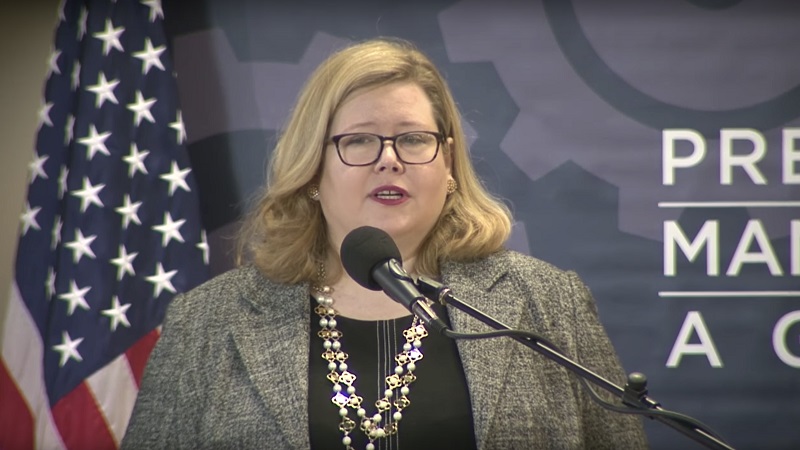
While some aspects of the Trump administration’s government agency reorganization proposal released in June have flown into moderate headwinds in Congress over jurisdictional and workforce issues, the proposal found a friendlier–if still somewhat cautious–audience at a hearing of the Senate Homeland Security and Governmental Affairs Committees’ subcommittee on Regulatory Affairs and Federal Management Thursday.
The July 26 hearing featured the heads of the Office of Personnel Management (OPM) and the General Services Administration (GSA), who both assured subcommittee members that they were already well along in tackling the first phase of a proposed shift of many of OPM’s workforce-related transactional functions to GSA, which would leave OPM free to concentrate on workforce policy issues.
That first phase, said GSA Administrator Emily Murphy, involves moving “a broad section of human resources products and services” from OPM to GSA. She said the two organizations had already formed “working groups and transition coordinators” to plan for that phase of the proposal.
In arguing the wisdom of the shift of transactional workforce duties to GSA, Murphy emphasized the benefits of the move to the Federal government’s larger IT modernization strategy and the resulting opportunities to consolidate IT infrastructure and leverage government purchasing power. She said the move would save money and improve services GSA provides to OPM and a host of other Federal agencies.
“The goal,” Murphy said, is “sharing quality services,” understanding “how to bring modern IT services to government,” and allowing “for OPM to focus on improvements of human capital policy.”
“We are not a policy organization,” Murphy said. “We are an administrative back office…We process the transactions; we make things happen; we try to find efficiencies.”
OPM Director Jeff Pon echoed those sentiments and said the proposed shift of duties from OPM to GSA will help his agency “do better at making human resources policies, like identification of workforce skills, and leadership and talent management.”
“We are currently developing a detailed implementation plan” for the first phase of the shift, he said, and promised a “continued conversation” with members of Congress as the agencies developed plans to switch functions to GSA in addition to the initial push involving HR services.
He also ticked off how the shift of functions to GSA would benefit the larger IT modernization push and said it would help OPM clear its decks to get a better handle on more policy-focused issues, such as more accurately counting and deploying the Federal government’s cybersecurity workforce.
Among the issues to be tackled on that front, he said, are making “an entire accounting” of cyber workers directly on the Federal payroll, as well as those employed by contractors, and moving toward a more regular reevaluation of skills and duties. “We need to look at that occupation and adjust every six months” to keep up with changes in cybersecurity technology, he said.
Sen. Heidi Heitkamp, D-N.D., ranking member of the subcommittee, said the plans to shift OPM transactional functions to GSA were “interesting, and need to be explored,” while also cautioning that the administration and Congress will “have to work together to see how that would be carried out.”
“I am tantalized to see if there would be efficiencies” realized by the plans, she added.
Sen. Maggie Hassan, D-N.H., told the witnesses, “I think this plan can be a starting point for the conversation about modernizing government…but we all know the devil is in the details.”
Sen. Ron Johnson, R-S.D., chairman of the full Homeland Security Committee, elicited from Pon that some changes in the broader modernization plan will require approval from Congress, and that OMB was taking a “phased approach” to implementing aspects of the plan. Sen. Johnson said that a phased approach “should calm everyone down.” He added, “Hopefully some of this stuff should be common sense.”
